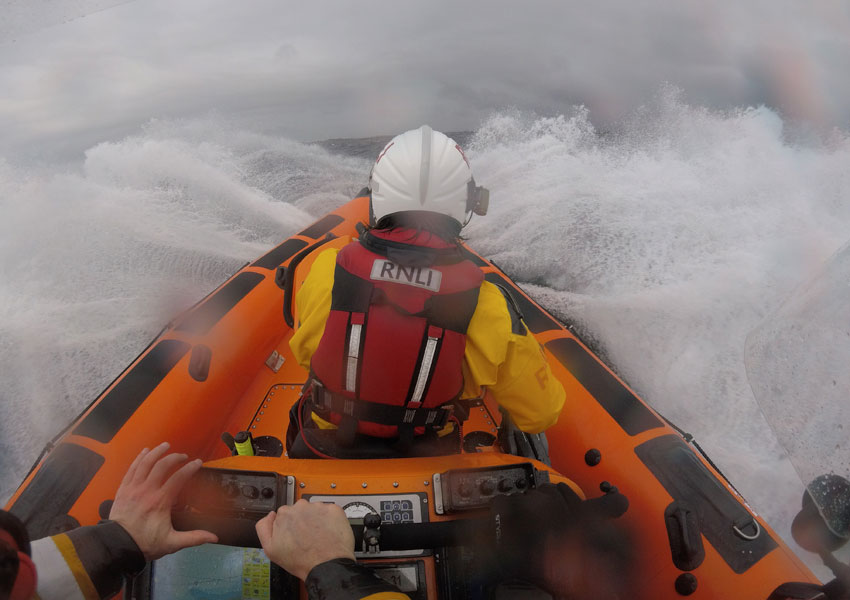#RNLI - Courtmacsherry RNLI’s all-weather lifeboat was called out at 5.20pm on Friday evening (24 August) when a dog was reported to be stranded on remote rocks at the base of a steep cliff, near the Fuschia Walk in Courtmacsherry Bay.
Frederick Storey Cockburn — under coxswain Sean O’Farrell, with mechanic Colin Bateman and crew members Donal Young, Conor Dullea, Paul McCarthy and Enda Boyle — was launched immediately and reached the cliff face in 15 minutes.
The potential danger was that people would attempt to climb down the steep cliff in an attempt to get to the dog. There were also reasonable gusty winds at sea that evening, which made conditions tricky for working near the cliff face.
Two lifeboat volunteers manoeuvred into the rocky creek on an inflatable rescue dinghy and were able to persuade the black and white setter to get on board.
Once safely on board the lifeboat, the dog was given a prime seat as the lifeboat prepared to head for home.
Minutes later, a pleasure boat that was nearby had experienced engine failure and requested assistance.
The lifeboat immediately went to the aid of the 21ft pleasure boat — plus its skipper and his own dog — and took it in tow back to the safe surrounds of Courtmacsherry Pontoon by 6.45pm, where there was an emotional reunion with the owner of the stranded setter.

More recently, Bundoran RNLI in Co Donegal responded yesterday evening (Sunday 26 August) to a false alarm with good intent after three stand-up paddle boarders were reported to be in difficulty near Mullaghmore, Co Sligo.
The lifeboat, helmed by Killian O’Kelly was launched around 5.20pm minutes and immediately made its way to the scene amid difficult weather conditions, with heavy rain and reduced visibility.
Once on scene, the crew observed that the experienced trio, who had been competing in a downwind race from Mullaghmore to Bundoran, were not in any difficulty.
“They were all wearing lifejackets and carrying a method of communication,” O’Kelly said. “While this was a false alarm with good intent, we would like to commend the member of the public who raised the alarm as conditions at sea were not good at the time. We would always much rather launch to find all is well than not launch at all.
“With a lot of visitors enjoying the long Northern Bank Holiday weekend here in Bundoran, we would remind everyone planning a visit to the beach or the sea, to always respect the water.
“Plan your activity in advance, always wear a lifejacket and always carry a means of communication. Should you get into difficulty, call 999 or 112 and ask for the coastguard.”































































